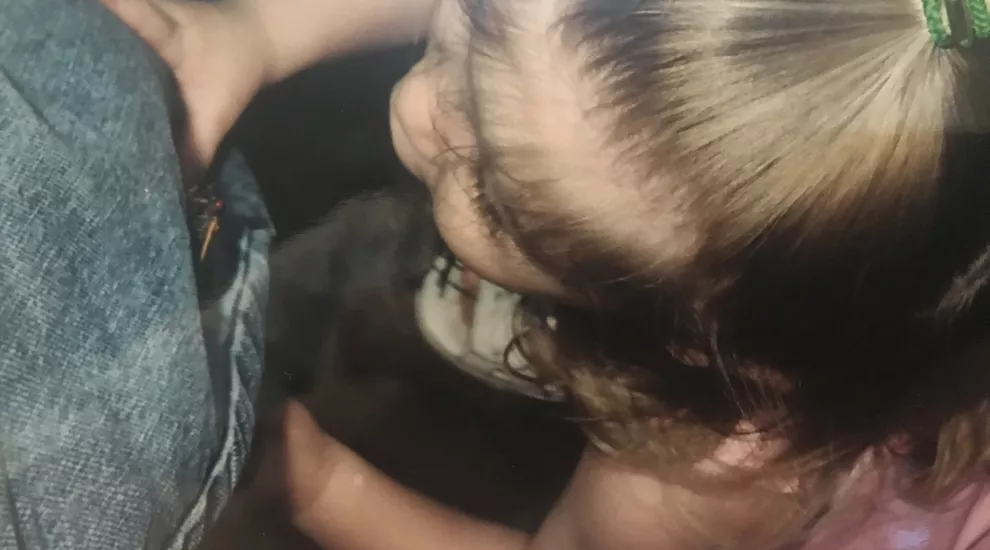
The thumb-sized creature recklessly kamikazed onto my upper arm, stuck the landing and remained there, staring up at me with its trademarked red eyes. This was my first encounter with a childhood friend that I hadn’t seen in 17 years.
I first met the cicadas of Brood X when I was a fresh two-years-old and there birthed a fascination with the creatures that waited 17 years to find me again.
Their chirp, I remember, has always been a noise of comfort to me, despite my general discomfort with insects. The bright chorus of what sounds like a high-pitch car revving up blankets the summer months during their cycle.
This friend of mine, sitting on my arm, startled me – made me jump and laugh in the moments where my family was putting my grandfather into his burial spot. Quite an inappropriate scene if it weren’t for my older sister, cousins, and mother behaving the same way.
Grandpa’s new resting place is shaded under a tree with hundreds of cicada neighbors covering the trunk and its branches, which produced the insect raid at the ceremony. Less to be said, we kept the ritual of placing his urn into the ground next to my grandmother’s and scooping earth to cover him short and sweet in hopes of finding refuge in the 1960s ranch-style house that my grandparents made a home for over 70 years.
Most people from the midatlantic region of the United States consider these creatures nuisances or disruptive, but they serve a deeper purpose than just reproduction in their quick life above ground.
They serve as a landmark – a mile marker – for an era in each of our lives.
Each time they resurface into our world, it is a sign to think about that last time they did just that. From ages two to 19, I have now become my own person. I have experienced life to a certain extent to where it’s as if the cicadas are meeting me for the first time again. And me them.
A sign to think about where you will be in another 17 years when they will return to your life. I will be 36 – the age where I am supposed to have a semblance of my life together: career, marriage, children, etc.
My dad was 33 in 2004 when I met the cicadas for the first time. To imagine that we will be in similar stages of our lives the next time I hear that signature chirp is a testament to the cicadas’ importance in my life – in all of our lives.
When I am 36, I’ll remember Grandpa. His laugh, his hugs, where he used to sit in the basement of his home and watch Wheel of Fortune. I’ll remember how many people dropped everything in their lives to travel and attend his service, despite a perpetuating global pandemic. I’ll remember how we celebrated his 95 years of life and dedication to his family.
The cicadas are not only tantalizing creatures to learn about nor pesky insects that swarm the air for three months, they call you back 17 years. They are nostalgia embodied.
When I’m 36 and worried about the daily trials of adult life, possibly my own family and the fast pace of my future career, the cicadas will call me back to these memories. To a life that feels like a lifetime ago. I will be able to be 19 again, even if it is just for a moment, just in my mind.

